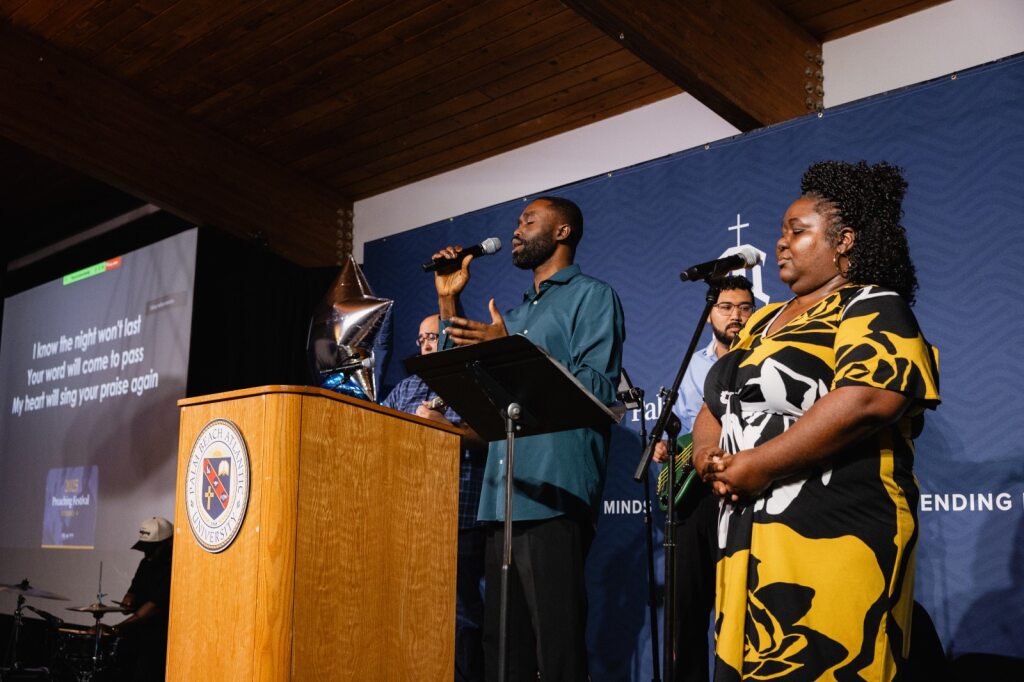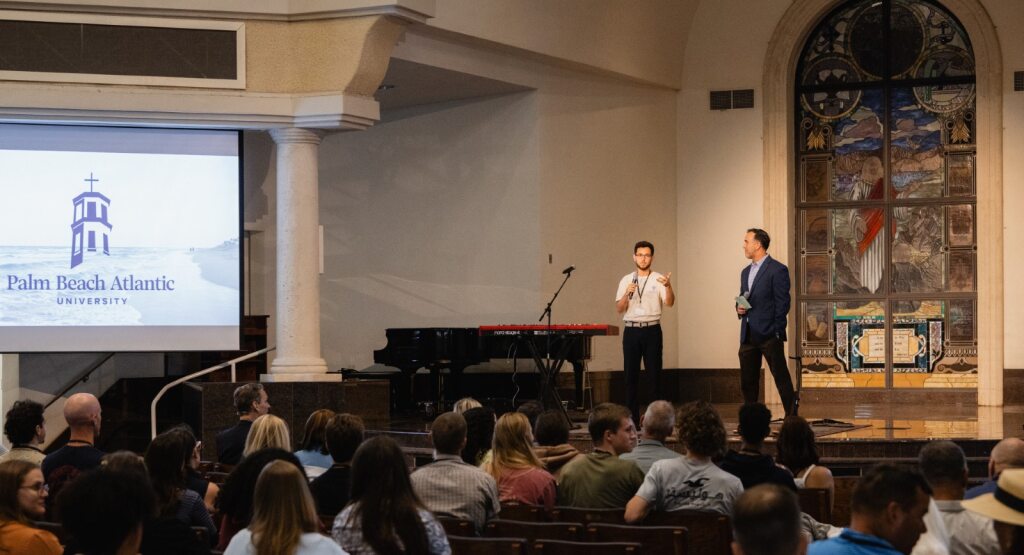Award-winning biology Professor Tom Chesnes strongly emphasized the harmony between his identity as a scientist and a man of faith during the first lecture in the 2019-20 Christian University series.
His lecture was entitled “Endless Forms Most Beautiful (and Eternal): Biology in the Christian Academy,” derived from a quote in Charles Darwin’s 1859 book “On the Origin of Species.” The lecture series, in its second year, explores the philosophical and practical aspects of Christian scholarship.
Chesnes, who specializes in estuarine and field biology, won the Charles & Hazel Corts Award for Outstanding Teaching in 2015. He has published 10 peer-reviewed articles, five of which had undergraduate co-authors, and he regularly conducts field research with students, said Associate Provost Dr. Nathan Lane. Additionally, Chesnes leads students on a course abroad in the Galápagos Islands.
During his lecture, Chesnes explored what it means to be both a Christian and a biologist. The vocation tends to get caught in a culture war in which science and religious beliefs are viewed as incompatible, Chesnes said. He sees his job as finding harmony between what he observes in nature and what is revealed in scripture. Too often, students are driven away from their faith by either-or scenarios, he said.
“An important role as a Christian biologist is to build a bridge,” Chesnes said. “The spiritual casualties are too high and unnecessary.”
Science and faith answer different questions, Chesnes said. Science deals with observable world, not the spiritual or metaphysical. It assumes order and predictable cause and effect. Theories are provisional and subject to change. Multiple theories can be valid, within certain limits.
Science can’t give ultimate explanations for the origins of the universe, nor can it define morality or value, Chesnes said. It can’t prove the existence of God; it can only point to him.
Above all, humility is important, Chesnes said. Prayer and critical thinking can help people identify where they’ve erred.
“No matter who you are or how many books you’ve published, I guarantee you’re wrong about something,” Chesnes said.
Similarly, Christians should avoid giving litmus tests or theological ultimatums that make it harder for others to find their way, he said. The creation account in Genesis 1 and 2 gives wide latitude for interpretation, he said.
“God could have created however he chose to do so,” Chesnes said. “However we read Genesis 1 and 2, God did it.”
Imposing deal-breakers could result in fewer Christians in the sciences, graduate schools and medical schools. When decision-makers are making important choices about ecology and bioethics, “I want Christians at the scientific table,” Chesnes said.
In the modern age, people want pat explanations because they are afraid of mystery. Chesnes encouraged those in attendance to lean into it instead.
“God’s beauty is in that mystery.”


